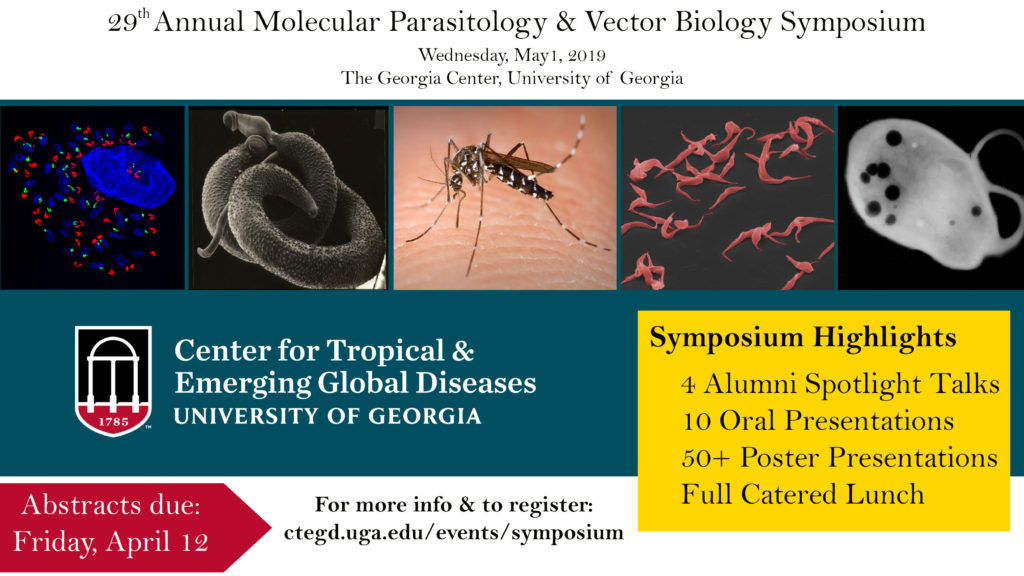CTEGD Emerging Fellows Symposium
We invite recent and soon-to-graduate students (from any biological discipline) to apply for funded postdoctoral fellowships and positions to study parasitic diseases at the University of Georgia. Selected applicants will present their research to the CTEGD community on May 3, 2021 via Zoom at CTEGD Emerging Fellows Symposium. The applicants will get to meet with several faculty at CTEGD, as well as former and current trainees of the T32 program. We strongly support and encourage scholars from historically excluded or underrepresented groups to apply.
To apply, please send a cover letter and your CV by April 2, 2021 to ctegdt32@uga.edu
Program Goals
Since 2004, the Center for Tropical and Emerging Global Diseases at UGA has received funding from the NIH for an institutional training grant with the purpose of training researchers to become independent scientists who study parasitic diseases in the context of global health.
Eligibility
- US citizen or permanent resident (if applying for T32 fellowship)
- PhD received on or before August 1, 2021
Program Highlights
The Training in Tropical and Emerging Global Diseases program seeks fundamental insights into protozoan and helminth parasites and their interactions with mammalian hosts and invertebrate vectors. The CTEGD is an exceptional place to do a postdoc with an invigorating and supportive environment. Athens is a quirky, fun, and affordable city to live in.

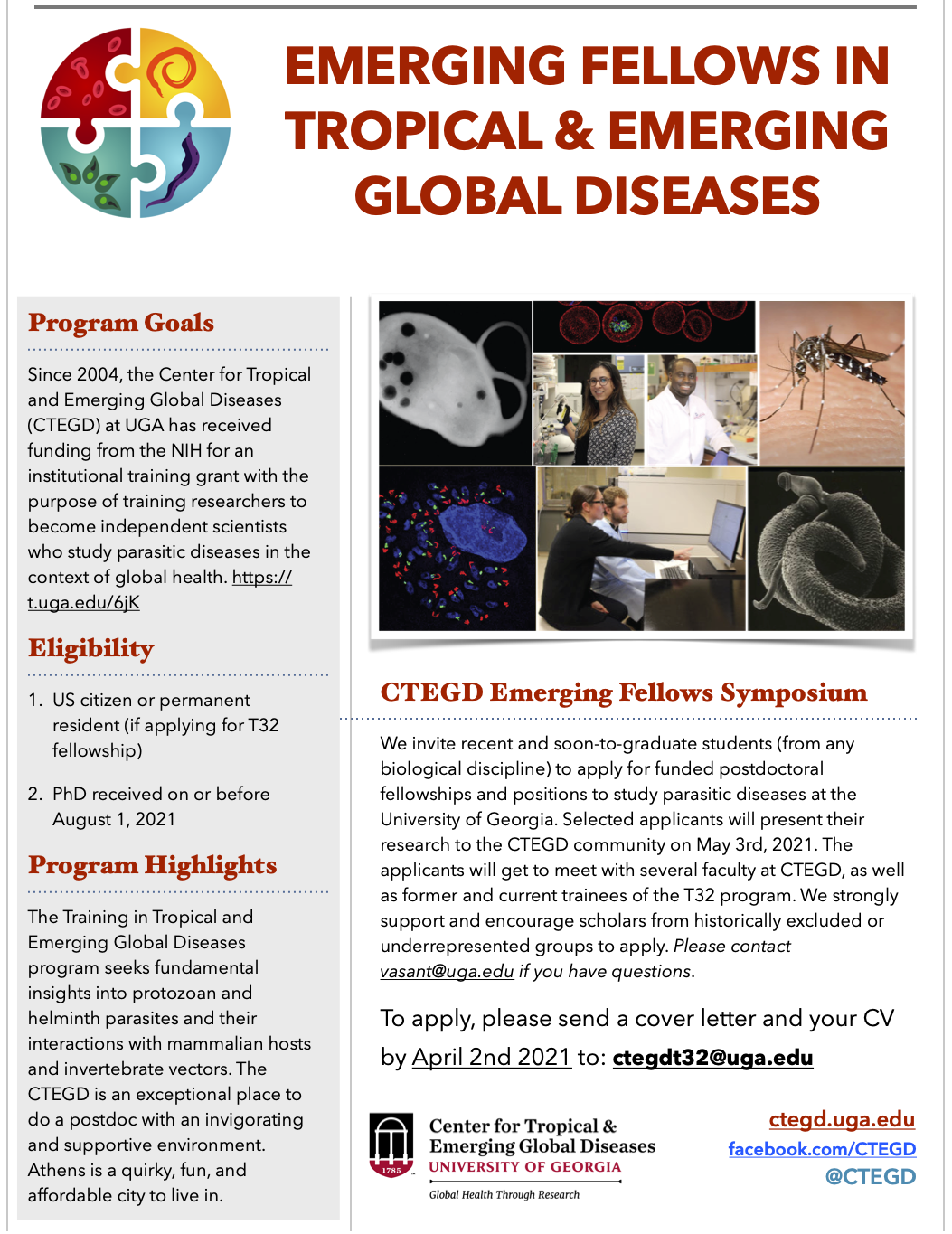

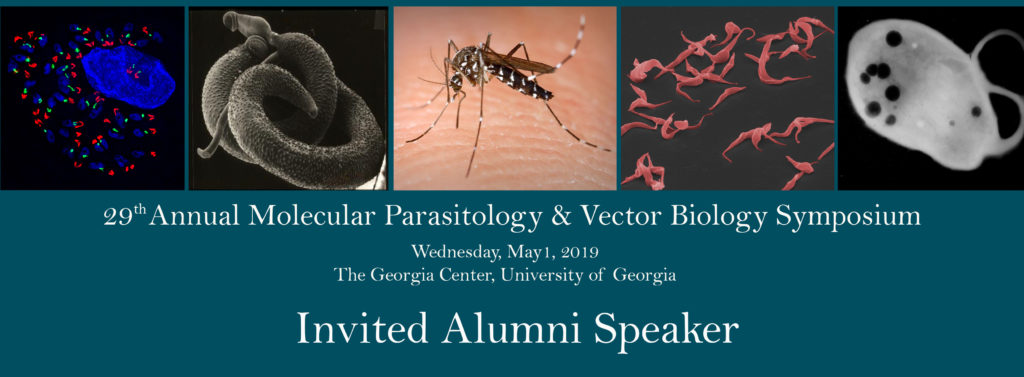
 Marc-Jan Gubbels received his Ph.D. at the University of Utrecht, the Netherlands, on diagnostics and vaccines for tick-transmitted Theileria and Babesia parasites of cattle. He then came to the CTEDG for a post-doc with Dr. Boris Striepen on Toxoplasma gondii. In 2005, he transitioned into an independent faculty position at Boston College and continued working on Toxoplasma. His lab is using and developing forward, reverse and functional genetic tools using enzymatic as well as fluorescent protein reporter assays in combination with cell sorting and fluorescence microscopy to learn more about the parasite’s cell biology.
Marc-Jan Gubbels received his Ph.D. at the University of Utrecht, the Netherlands, on diagnostics and vaccines for tick-transmitted Theileria and Babesia parasites of cattle. He then came to the CTEDG for a post-doc with Dr. Boris Striepen on Toxoplasma gondii. In 2005, he transitioned into an independent faculty position at Boston College and continued working on Toxoplasma. His lab is using and developing forward, reverse and functional genetic tools using enzymatic as well as fluorescent protein reporter assays in combination with cell sorting and fluorescence microscopy to learn more about the parasite’s cell biology.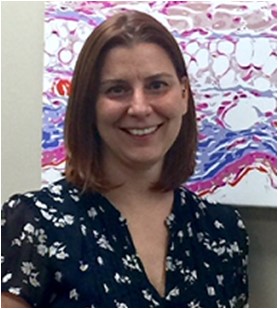 Macrophages are the major cell type infected by Leishmania parasites and the goal of my research is to define the relationship between Leishmania parasites, macrophages and the vasculature. Throughout my graduate studies and postdoctoral positions, I have dedicated my efforts toward understanding parasite-host interactions. As a graduate student at the University of Georgia carrying out research at the Centers for Disease Control and Prevention under Dr.
Macrophages are the major cell type infected by Leishmania parasites and the goal of my research is to define the relationship between Leishmania parasites, macrophages and the vasculature. Throughout my graduate studies and postdoctoral positions, I have dedicated my efforts toward understanding parasite-host interactions. As a graduate student at the University of Georgia carrying out research at the Centers for Disease Control and Prevention under Dr. 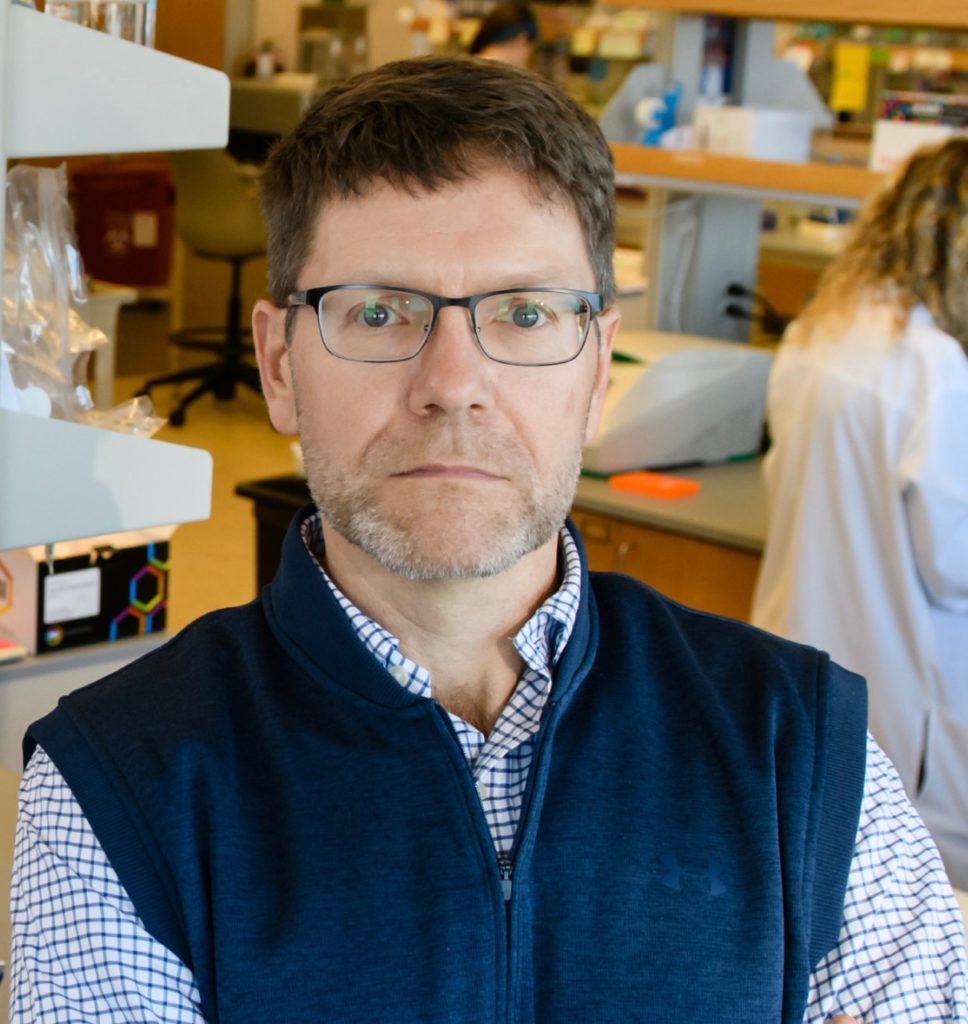 James Morris is currently a Professor of Genetics and Biochemistry at Clemson University. He earned his BS at The College of William and Mary in Williamsburg VA in 1990 and an M.S. in Entomology at the University of Georgia in Athens GA in 1992. He completed his Ph.D. in Cellular Biology at the University of Georgia in 1997, characterizing the enzymology of a glycosylphosphatidylinositol phospholipase C from the African trypanosome, Trypanosoma brucei, under the supervision of Dr.
James Morris is currently a Professor of Genetics and Biochemistry at Clemson University. He earned his BS at The College of William and Mary in Williamsburg VA in 1990 and an M.S. in Entomology at the University of Georgia in Athens GA in 1992. He completed his Ph.D. in Cellular Biology at the University of Georgia in 1997, characterizing the enzymology of a glycosylphosphatidylinositol phospholipase C from the African trypanosome, Trypanosoma brucei, under the supervision of Dr.  Matthew Collins obtained his Ph.D. studying under mentor Dr.
Matthew Collins obtained his Ph.D. studying under mentor Dr. 
